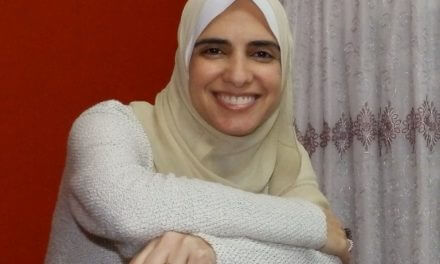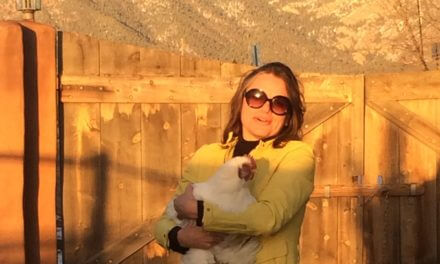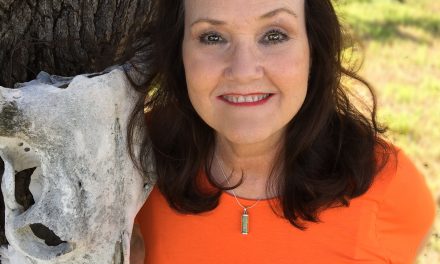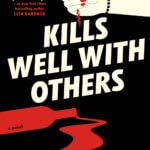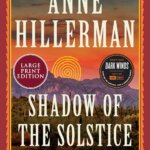Today Michael Ross joins me to talk about his new book, Across the Great Divide: Clouds of War. A lover of history and great stories, he’s a retired software engineer turned author, with three children and four grandchildren, living in Newton, Kansas with his wife of thirty-eight years. Michael graduated from Rice University and Portland State University. He was born in Lubbock, Texas, and still loves Texas. He’s written short stories and technical articles in the past. Across the Great Divide is his first novel.
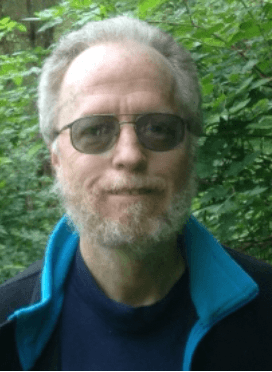
SS: What was an early experience where you learned that language had power?
MLR: I’ve always had a passion for history. In fourth grade, I began reading the Declaration of Independence, the Constitution, and the Bible. The enormous power and impact of those words, and how they changed history made me want to learn more about writing.
SS: Writing is undoubtedly a lonely occupation. John Green (The Fault in Our Stars) says writing is a profession for introverts who want to tell you a story but don’t want to make eye contact while doing it. P. D. James (Cover Her Face) says it’s essential for writers to enjoy their own company. Do you see yourself along those lines? Are you a natural loner?
MLR: Yes, I’m very much a loner, though I believe in my later years my wife’s extrovert tendencies are rubbing off on me. Frequently, I’m happiest when following a research trail, and creating stories and characters. Large parties can be … interesting!
SS: Hilary Mantel (Wolf Hall) says that a Catholic upbringing is the only qualification a writer requires. Doris Lessing (The Grass Is Singing) says her many homes (a country house in what is now Iran, a farm in what is now Zimbabwe, a boarding house in South Africa, and cold water flats in London) made her a writer. Can you relate to either of these ideas? Do you have any similar writing qualifications?
MLR: I think to be a writer, you first have to be a reader, and read widely. I can relate best to Lessing’s statement, though my Christian faith definitely influences what and how I write. I grew up all over the United States. I’ve lived in eight different states and visited all fifty, as well as Mexico, Canada, Honduras, China, Russia, Germany, Austria, Italy, Greece, and Israel. As a young child, my parents hosted foreign students, exposing me to many different cultures, languages and food. We even had a teenage girl from Japan live with us for two years.
SS: You sound as widely traveled as I am. I was an oil field brat who grew up all over the western United States then traveled abroad and lived in Italy for three years. What part do your own fears play in your fiction?
MLR: Fear of death, fear of rejection, fear of insignificance – I think most writers can relate to these fears. They are reflected in my characters.
SS: Do you think that self-revelation is part of the writing process?
MR: Yes. How can one not reveal opinions, thoughts and feelings when infusing them into characters? I recall Diana Gabaldon in an interview, when someone disparaged the character of Jack Randall – she replied, “You know you’re sitting next to Jack Randall, don’t you?”
SS: Could you say something about your relationship to your fictional characters? How autobiographical do you think your fiction is?
MLR: Most writers are a little batty, I think with one foot in the real world and one in their novels. My characters talk to me, walk up and introduce themselves, and at times, complain about the way they are written. My main character in The Clouds of War is certainly similar to me in personality and thought. Once in the early 1990s, I found that there were certain days, not publicized, when Tom Clancy would activate his AOL account, and answer email questions. I got into an email conversation with him, asking about his characters, and writing. He allowed that Jack Ryan was basically him. He suggested that making your main character autobiographical in personality and tendencies would make the narrative flow easier. I’ve never forgotten that.
SS: What’s something memorable you’ve heard from your readers/fans? What’s been the best compliment?
MLR: One reader was extremely excited when I helped her trace a Civil War ancestor and turned up facts about him. During a series on the Second Ladies of the United States (vice president’s wives), one reader said, “I wait every Monday morning for your posts.”
SS: What literary pilgrimages have you made?
MLR: I visited the Shiloh battlefield and walked all over it in the steps of my main character, who fought in the battle (historical person). I also visited Lexington, Ky. and the Ashland plantation. I drove the roads that my characters might have used. I visited Waveland plantation, the Mary Todd Lincoln house, and the John Hunt Morgan house (actually his mother’s).
SS: What is your most recent book? In twenty-five words or less, tell me why a reader should start your book next.
MLR: The Clouds Of War gives a poignant parallel to the divisions and controversies of today through the eyes of history and ordinary people of that period. Sometimes, to understand the present, you have to look at the past.
SS: How did publishing your first book change your process of writing?
MLR: I learned so much in the process of doing the first book. I started out as more of a “pantser,” writing things as they came, and knitting them together. Now I tend to be more of an outliner, with a definite story structure.
SS: Do you generally write in one genre? If so, what is it? And what can readers expect from one of your books?
MLR: Yes, I write in historical military fiction, suitable for YA. Readers should expect characters that are like real people—indeed, often some of them were real people, a story that engages, but has a point, and historical accuracy.
SS: Regardless of genre, what are the elements that you think make a great novel? Do you consciously ensure all of these are in place?
MLR: I think a great novel is one that drives the reader to think better, to do better, to understand more of life. To accomplish this, you need characters with depth and a story that makes you want to read on. I certainly try to make sure these are present.
SS: Was the decision of how to structure the novel obvious?
MLR: Based on the historical context, yes, it was fairly obvious. Using a real historical person as a character constrains you to follow their story in the main points.
SS: How did you make the decision regarding point(s) of view?
MLR: The story belongs first and foremost to Will Crump, the main character —his point of view was essential, the driving force. Will’s sisters and Luther are the other POV characters, each with a different perspective on the times and events. I felt that the additional POVs were necessary to flesh out the story.
SS: Where is your book set? How did you decide on the setting? When is it set?
MLR: The Clouds of War is set in Lexington, Kentucky, Tennessee, and the surrounding area, with detours to Ohio and Camp Douglas prison camp near Chicago. Since Will is a historical person, the setting was determined by where he actually was throughout the Civil War. The story begins in 1859 and wraps up shortly after the surrender at Appomattox.
SS: Mark Rubinstein (Beyond Bedlam’s Door: True Tales from the Couch and Courtroom) says “Without chaos, there’s very little story to tell.” What’s the central conflict in your story?
MLR: The central conflict is Will’s desire to be a man of honor, a man of God, and reconciling that with his role in the war. The chaos is created by the forces driving the people of the time to fight—the war itself.
SS: A good ending should fix the shape and meaning of the whole novel. How did you make sure yours did exactly that?
MLR: I think the ending shows that even amid carnage and chaos, there is always hope. Leaving most of the characters in a good place points this principle out, I believe.
SS: Which scene did you find the most challenging to write and why?
MLR: The most challenging scene was the slave torture scene. I took it from an actual incident that occurred, but I wanted the reader to see and feel the pain, fear, and hatred, without being too extreme to the point that no one could stand to read it. I wanted to walk that tightrope for the reader, covering their eyes and ears at just the right times. Just writing it made me angry and made me cry, to think that human beings can treat one another that way.
SS: Who do you consider to be your biggest and best mentor and/or inspiration?
MLR: Tom Clancy.
SS: If you were deserted on an island, which three people would you want with you? Why? One fictional character from your book, one fictional character from any other book, one famous person that is not a family member or friend.
MLR: I’d want Will Crump, Aragorn from Tolkien’s LOTR, and David Crockett. With those guys, we’d find a way to survive and thrive, and eventually, escape.
SS: If you could write about anyone, fictional or nonfictional, who would you write about?
MLR: Historical Person, David Crockett, starting in his younger years, or my Civil War nurse, that I’ve started (yes, based on a real person).
SS: If you could have been the original author of any book, what would it have been and why?


MLR: Albinia, Will’s sister, definitely surprised me, because of the compromises to her character that she makes in the name of helping others.
SS: If you time-warped fifty years into the future and found that something you created has become a trope or buzz-word, how would you feel? Would you feel cheated of royalties or vindicated as a genius?
MLR: Definitely vindicated as a genius. Paul Simon was once asked how he felt about his songs becoming “elevator music”. He answered, “It says that you’re melded in the culture.”
SS: What’s the first book you read that made you think, “I’ve got to write something like this someday!”
MLR: Dumas’s The Count of Monte Cristo


SS: Have you read The Black Count by Tom Reiss? It’s about the real-life inspiration for The Count of Monte Cristo and The Three Musketeers. It’s one of those books where even the footnotes are fascinating. Commenting on the recent TV drama, Versailles, Historian Greg Jenner wrote, ‘Firstly, let’s be clear that historical dramas don’t need to be accurate. It’s nice when they are, but it’s not their purpose – drama is entertainment, not educational programming. The past was messy. Stories, however, require rigid structure.’ Is that something you can agree with?
MLR: No. The past as it happened is/was a story – the story of some real people. Adjustments may be needed for space, dramatic effect, or due to unknown facts. But to fudge historical drama to the point of willfully ignoring known history (think Braveheart), is just laziness.
SS: In your novel, the nineteenth century seems ripe for picking, but what fascinates you about that era?
MLR: The nineteenth century was a time of enormous change around the world. Only perhaps in our present era has more changed faster.
SS: That’s one of the reasons my first book, A Different Kind of Fire, was about women’s roles in the late nineteenth century—the role of women was changing rapidly and radically. How do you get into the mind-set of a person in the era of your book?

MLR: In the nineteenth century, thankfully, there are numerous diaries, letters, and newspapers to inform as to how people of the time thought. I read many diaries, countless letters, and looked at newspaper accounts of the events I was writing about, to keep it fresh.
SS: Evie Woolmore (The Salt Factory) says there are three kinds of ‘historical novelists’: those who write in order to accurately reconstruct history in fictional or quasi-fictional terms (Philippa Gregory or Hilary Mantel); those who write stories whose plot is reliant on and infused with the historical setting and thus which are historically very precise and well-researched; and those who write novels which are not principally historical but work effectively in historical settings. Do you share that view and, if so, which category do you fall into?
MLR: I would agree with that view—I fall into those who write stories whose plot is reliant on and infused with the historical setting and thus which are historically very precise and well-researched.
SS: One of the interesting things about writing historical fiction is that the reader has the benefit of hindsight, while the characters in the book do not. How do you use this to your advantage in your book?
MLR: I think it can be used to enormous benefit in making events “jive” with how history turned out, especially when writing about strictly fictional characters. You can set up endings and plot twists, knowing where they will lead. For example, a recent reader of my novel told me that some of the deaths were unexpected—but made sense in the end, in historical context.
SS: The key trick in writing historical fiction is transporting readers to another time and place without overloading them with historical information. So how much detail is too much?
MLR: Just watched a literary agent panel on this topic – the consensus was, enough to make the reader feel that they know where they are, but not so much that they can come away describing the pattern on the napkins. In one of the Outlander novels, Gabaldon uses a full page to describe the cabin and ridge where Jamie and Claire live, without any action or dialog at all. That was too much detail.
SS: Joanna Russ (The Female Man) wrote, “Not only is female experience often considered less broad, less representative, less important, than male experience, but the actual content of works can be distorted according to whether the author is believed to be of one sex or the other.” Do you wish to comment?
MLR: Due to my mentor, Tom Clancy, who said he’d never write a book with a woman as the main character because he couldn’t do it justice, I was very concerned about the “voice” of my female POV characters. I had numerous female beta readers for that very reason. My best compliment was when one said, “I don’t normally read novels by men – they never get the women right. But you did.”
SS: If you tackle meaty ethical issues, how effective do you think fiction is as a bridge between the experts and the public when it comes to stimulating debate?Could it be better employed?
MLR: It could definitely be better employed, but when it becomes stilted and one sided, it tends to get disregarded. To be effective, it needs to present the flaws and faults of both sides.
SS: Now for the infamous lightning round!
Describe your books in 3 words: History made fun
Favorite thing about your genre? Learning more about people and human nature
Another genre you would love to write: Mystery

Book you’re currently reading: The Hope of Azure Springs, Rachel Fordham
Your favorite guilty pleasure: Pretzels
Number one book boyfriend or girlfriend is: If you mean to read with, my wife.
Your favorite historical personage: Abraham Lincoln
Your favorite historical era: Nineteenth century
What is your favorite historical movie? The Longest Day
********************
Excerpt from Across the Great Divide: Book 1 The Clouds of War:
- Night of April 6
- Late in the afternoon, the order came to fall back. They bivouacked, just south of the Hamburg-Purdy Road. They made what simple camp they could. Darkness fell, and with the ebony of night, sheets of rain fell. Lightning and thunder boomed, as though heaven or hell joined in the battle. In the distance, Will could see the flash as the Federal gunboats fired their cannon. Whenever there was a break in the storm, Will heard the cries and pleas of the wounded left on the field. Occasionally a winking torch marked a group of brave soldiers going out to retrieve wounded. Will huddled in his pup tent, alone amid the tents of the other Raiders. No one knew why they halted. The horrors of the day passed in his mind, including the cold dead eyes of his friend, Archie. Was it worth all this? Why was he here? Where was God in the midst of this hell? Suddenly it was too much, and he broke down sobbing, wishing for home. What if his father lay dead on some field, perhaps even this one? He thought about the fact that each of the Federals he’d seen dead today, and the companions in gray, had parents, siblings, sweethearts – people that loved them. The battle at Shiloh was nothing like doing drills in front of Morrison or even the skirmishes they’d seen in the war up to this point. What compelled men to don clothes of different colors, like skins, march out on a field, and kill without thinking, based on the color of that woolen skin? Will prayed, asking God to make Himself real in this, and if Will survived, he made up his mind to go home, as soon as his enlistment was over. He’d fight to defend his home, but only his own home, and no other. Will slept poorly, reliving the battle in his dreams
********************

Across the Great Divide: Book 1 The Clouds of War is available through: Amazon | B&N
********************
Michael can be found here on social media:
